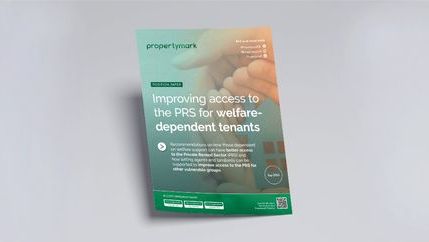
With the cost-of-living squeezing finances for everyone, there is an even greater incentive for landlords to maximise rent to cover costs and for tenants to push back on increases to protect their budgets.
There is the option for tenants to apply to a First Tier Tribunal if they think their rent increase is unfair, however, there could be a risk for both parties in asking the Tribunal to decide. Another option is to open discussions between a landlord and a tenant if there are affordability concerns. Propertymark member agents are experienced in advising landlords on setting fair rents and negotiating agreements, reducing the chance of disputes arising.
Analysis of 30 tribunal cases was carried out by i (inews.co.uk), an independent UK news outlet, which found:
- 8 where the rent could be increased by more than the landlord had asked for
- 11 where rent could go up but not by as much as the landlord had asked for
- 10 where the rent was fair and should stay the same
- 1 where the market rent was lower than the original rent
Read the UK Government guidance on First Tier Tribunals →
Rents sent hundreds of pounds higher
In one case from May 2023 concerning a property in Surrey, a landlord asked to increase rent from £1,260 to £1,300 per month. The tribunal initially said a figure of £2,200 per month was reasonable, but then made a deduction due to the ‘dated’ condition of the property and made a final decision that market rent should be sent at £1,540 per month.
In another hearing, held in April regarding a flat in south-east London, the landlord proposed increasing the rent from £86.42 per week to £92.75 per week, with the tribunal deciding a figure of £185 a week was reasonable.
Landlords are not obliged to set the rent at the higher figure decided by the tribunal, the amount simply represents their judgement of a reasonable market rent for the property in question.
How do tribunals decide on fair rents?
In market rent cases (assured or assured shorthold tenancies), the tribunal will look at the market or comparable rents payable for similar properties in the locality when determining rent. Parties are encouraged to provide evidence of comparable rents.
The tribunal has no regard for the current rent and the period of time during which that rent has been charged, nor does it consider the percentage increase that the proposed rent represents to the passing rent. In addition, the legislation makes it clear that the tribunal is unable to account for the personal circumstances of either the landlord or the tenant. The tribunal determines an open market rent as opposed to a social housing provider rent.
It's possible that the tribunal could decide whether the rent should be higher, or lower, or it should stay the same.





